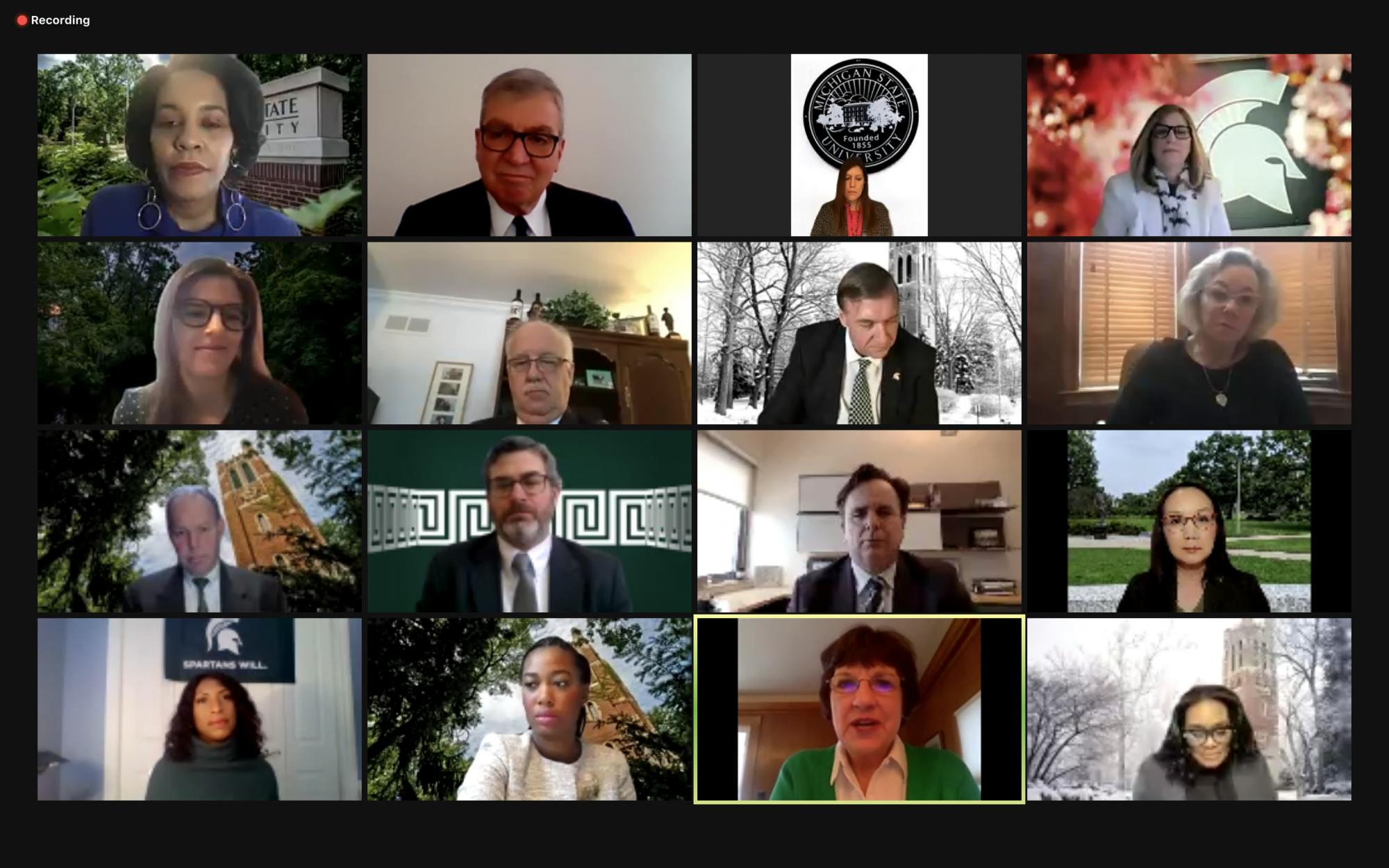Survivors of Larry Nassar’s sexual abuse once again called for an increase in transparency regarding the Healing Fund for survivors and support for survivors in general during Michigan State’s Board of Trustees meeting on Feb. 12.
Two survivors, Chrissy Weathersby Ball and Amanda Thomashow, asked the board to listen to the request of survivors, rather than continuing to ignore them about the problems that survivors have with the Healing Fund. They questioned whether the fund was put in place to actually support survivors, or as a public relations stunt to protect the university’s reputation.
“I'm sick of the way you treat your students and the way that you treat people who have been on your campus like they don't matter; like all that matters is how much money they can bring on the campus like their healing and growth,” Thomashow said. “Treat them like people. If you make a Healing Fund is it really for healing, or like Chrissy said, or just to make it look better for PR.”
Michigan State established the Healing Fund in 2017 to support survivors financially for any physical or mental health treatments that they needed in response to the abuse they suffered from Nassar.
The initial amount of money in the healing fund was $10 million. Trustee Dianne Byrum said during the press conference following the Board of Trustees meeting that they do not plan on increasing the amount of money in the Healing Fund.
There have been numerous problems with the Healing Fund during its short existence. In 2019, seven individuals were charged with fraud in connection with the Healing Fund. Also, there have been calls for Trustee Brianna Scott’s resignation, who oversees the Healing Fund, due to her alleged mishandling of the fund.
"We are aware of survivors who have either given up on or not even tried to get compensation for their medical expenses due to the complexity and repeated delays and denials in the reimbursement system," Ball said in a statement to The State News. "What concerns me most is that there are survivors who are not getting the help they need because they know they can't afford it and they don't think they will be able to make it through the maze of roadblocks to receive a reimbursement. At this point, MSU knows who we are and knows our trauma is real."
Scott did not reference the Healing Fund and claims of mishandling during her open remarks in the board meeting.
Ball said that she has been denied reimbursement for her medical treatments by the university in a one-sentence email, despite having medical records that prove that her treatment stems from the abuse that she suffered from Nassar and former MSU strength and conditioning coach Tim Wakeham during her time as a gymnast at MSU.
Ball competed for two years as a gymnast at MSU before she retired. She said this retirement was forced due to the systemic abuse that she suffered from Wakeham and Nassar while she was an active student-athlete.
“I began mental health treatments my freshman year as a result of the abuse,” Ball said. “I was confused and vulnerable, making me the perfect target to also be groomed and sexually abused by my professor and strength coach Tim Wakeham. The sexual physical, mental and emotional abuse I endured at Michigan State placed me literally in the pit of h---.”
Ball also referenced President Samuel L. Stanley Jr.’s community letter from January about MSU’s commitment to dismantling systemic barriers based on race.
“As a Black teenager who was nearly destroyed by the abuse of two white men on your campus, how long do you foresee treating me like a human will take?” Ball said.
Support student media!
Please consider donating to The State News and help fund the future of journalism.
Discussion
Share and discuss “Survivors demand transparency from the Board of Trustees regarding the Healing Fund ” on social media.







